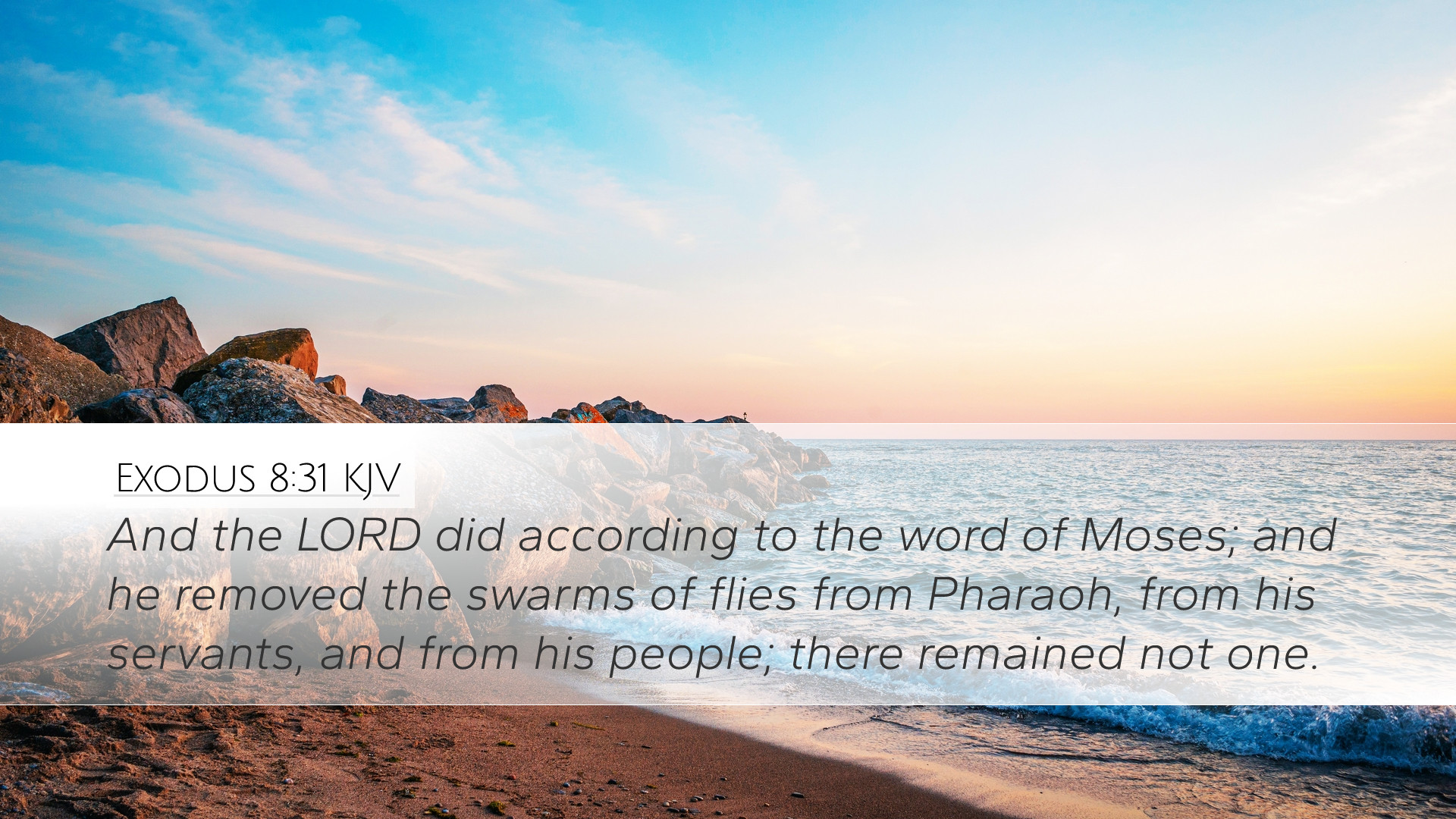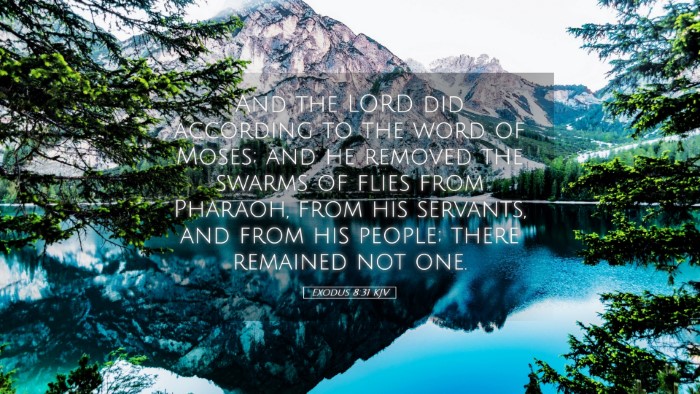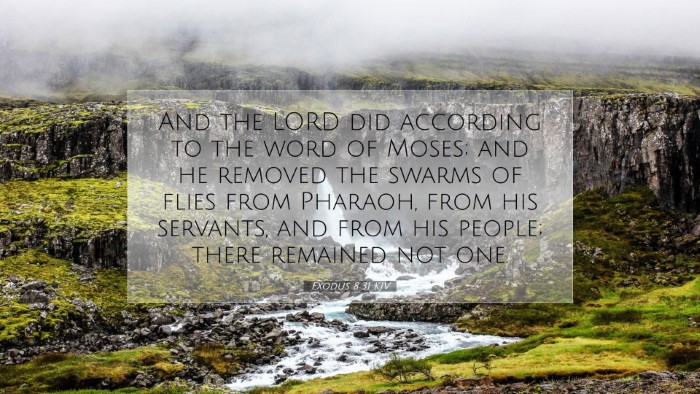Exodus 8:31 Commentary Overview
Exodus 8:31 states: "And the Lord did according to the word of Moses; and he removed the swarms of flies from Pharaoh, from his servants, and from his people; there remained not one." This pivotal moment in the narrative showcases God's power and mercy, as well as the significance of Moses' role as an intercessor.
Divine Authority and Response
Matthew Henry's Commentary emphasizes the divine sovereign response to Moses' plea. This interaction highlights the intimate relationship between God and His appointed leader, where Moses is seen not just as a messenger but as a significant player in God's redemptive plan. The act of removing the plagues at Moses' request illustrates God's yielding to His servant, displaying the weight of intercessory prayer and the potential for human agency in divine plans.
- God's Sovereignty: The verse illustrates God's control over creation, where even the swarms of flies, symbolic of chaos and disorder, submit to His command.
- Moses' Role: Moses emerges as a mediator, a precursor to Christ, whose intercessions are crucial in the unfolding of God's redemption plan.
Theological Implications
Albert Barnes discusses the theological implications of this verse in the context of God's mercy. The removal of the flies signifies not only relief from suffering but also God's willingness to listen to His people's cries. This act can be viewed as a foreshadowing of God's ultimate deliverance of Israel from bondage.
- Mercy and Compassion: Barnes notes that this act of removal was a demonstration of divine compassion, showing God's care for His people amidst judgment.
- Deliverance Theme: The recurring motif of deliverance is evident, as God acts in response to the cries of His people, reinforcing the promise of liberation.
Lessons on Faith and Intercession
Adam Clarke points out the vibrant faith demonstrated in this narrative. The faith of Moses is evident as he boldly requests God's intervention. This aspect of faith is critical for leaders and believers who seek to invoke God's power on behalf of others.
- Importance of Leadership: Clarke emphasizes the importance of righteous leaders who advocate for their people in prayer.
- Faith and Action: This passage serves as a reminder that faith must be coupled with action; Moses not only believed in God's power but also stepped forward to call upon it.
The Nature of God's Intervention
In this passage, God's intervention is marked by precision and efficacy. The fact that not one fly remained points to the completeness of God's action. This aspect of divine intervention is critical for understanding God's dealings with humanity.
- Comprehensive Deliverance: The completeness of the removal of the flies symbolizes the totality of God's deliverance, reassuring Israel of His capability to liberate them fully from oppressors.
- Contextual Understanding: As part of the broader narrative of Exodus, this verse serves to establish God's authority over both natural and supernatural elements, validating His command over Pharaoh and the Egyptians.
Application for Today
This passage invites reflection on several key themes for contemporary readers:
- Intercession in Prayer: Believers today are encouraged to engage in prayerful intercession for others, following the example set by Moses.
- Trusting in Divine Authority: The assurance that God hears and responds should embolden Christians in their faith journeys.
- Understanding Suffering: Reflecting on God's ability to remove plagues reminds believers that suffering is temporary and that God is in control, providing hope amid trials.
Conclusion
Exodus 8:31 serves as a powerful reminder of God's sovereignty, mercy, and the importance of faith-filled leadership. The insights drawn from Henry, Barnes, and Clarke enrich our understanding not only of the past events of Exodus but also of the ongoing relational dynamics between God and His people. This text inspires a deeper commitment to intercessory prayer and reliance on God's sovereign will in all circumstances.


